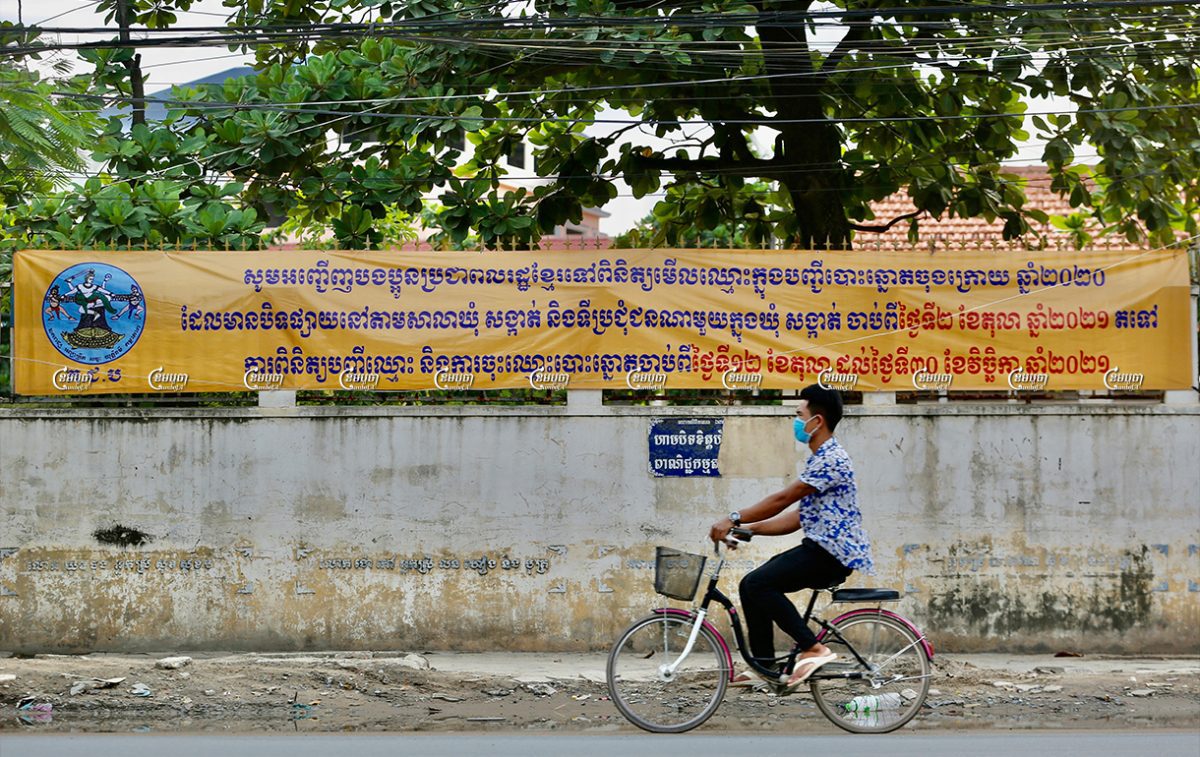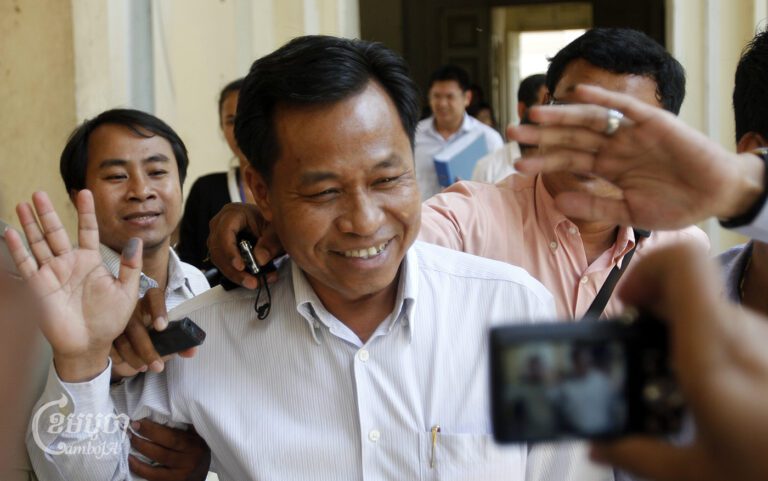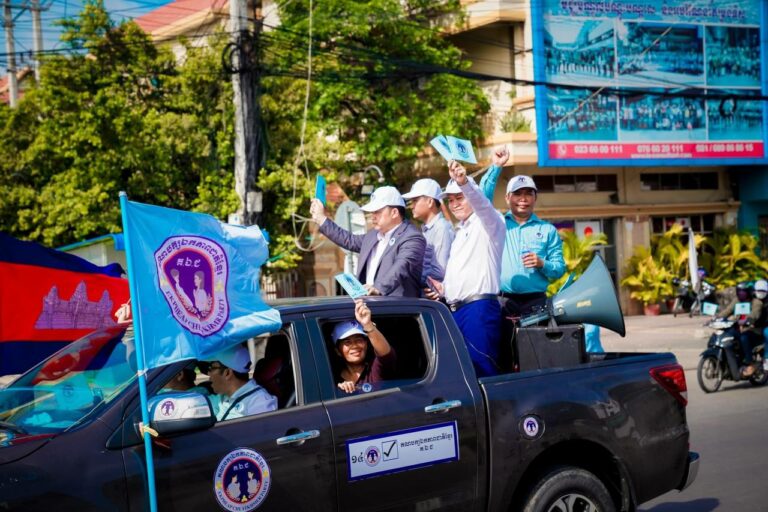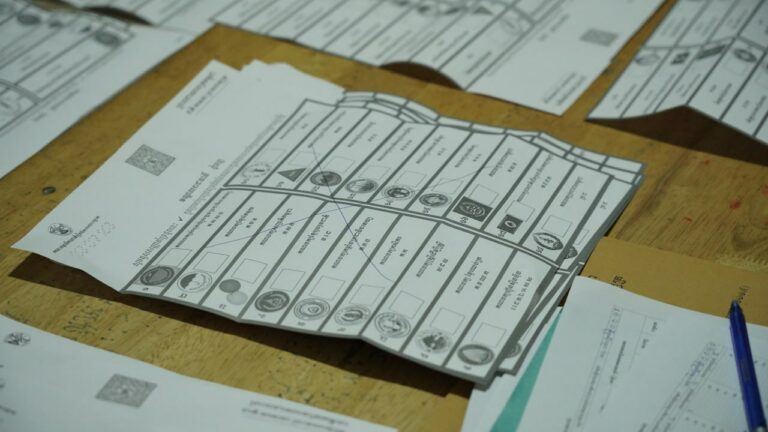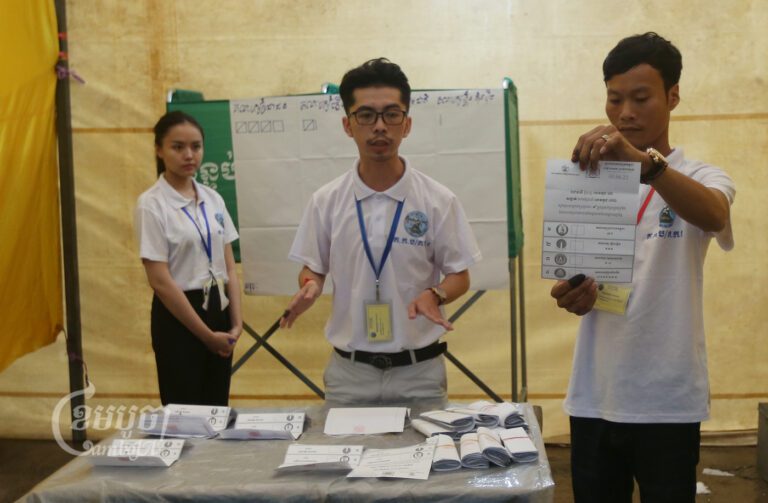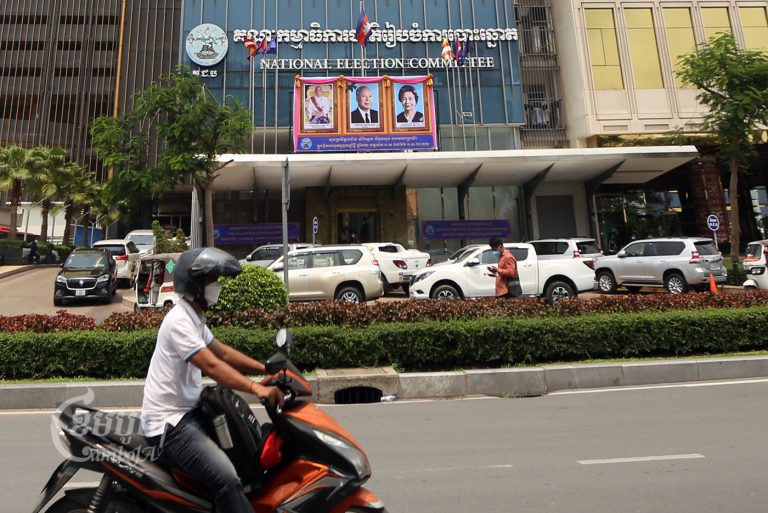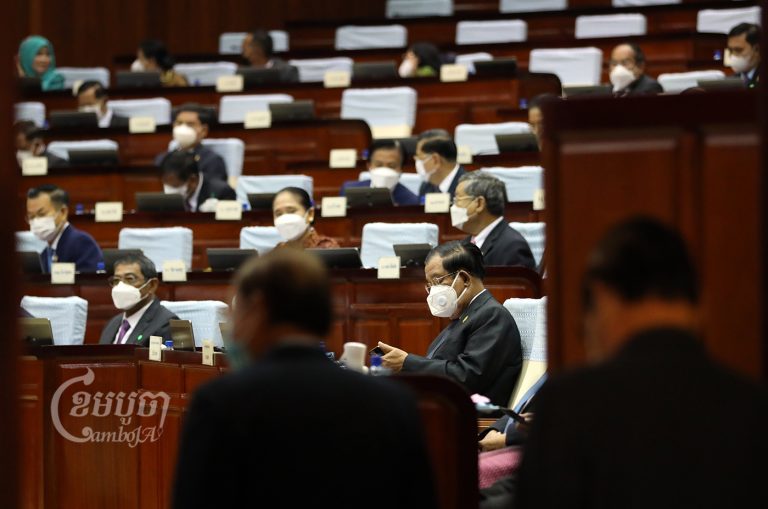Relying on traditional political messaging about the Khmer Rouge era won’t be enough to sway public opinion in the 2022 commune council elections, said deputy Prime Minister Sar Kheng on Monday.
Kheng, who leads the Ministry of Interior, delivered the campaigning advice to fellow Cambodian People’s Party members while speaking at a ceremony for the new governor of Stung Treng province. Rather than lean on slogans referencing the end of the communist regime 41 years ago on January 7, Kheng said, candidates from the ruling party should address grassroots issues that affect the public.
He pointed specifically to land disputes as an important issue for government officials to focus on.
“If we have just propagandized our achievements on January 7, in fact, they are already known,” Kheng said. “So, what do [people] need now? [We] must collect issues to resolve with accountability and justice.”
The 2022 commune council elections will be held June 5 and overseen by the National Election Committee across 1,652 communes, or sangkats, in all 25 provinces. Voters will go to the poll to elect commune chiefs.
Hang Puthea, spokesman of the National Election Committee, said voter registration will begin October 12 and last 50 days. Political registration to contest the election will be held March 4 and 6.
Kheng called on authorities to maintain public security in order to smoothly conduct the elections. He also urged provincial governors to encourage local officials to promote good governance ahead of the polls.
“They [villagers] look at whether village chiefs have served them well,” Kheng said. “[If] they need an ID card, birth certificate … and other services, whether they work slowly or with difficulty.”
Civil society groups welcomed the emphasis on governance rather than alluding to past achievements to win the favor of voters.
“Grassroots [efforts] are needed to resolve situations, including in public services and especially land issues,” said Korn Savang, advocacy coordinator at the Committee for Free and Fair Elections in Cambodia (COMFREL).
“If authorities are in power for five [elected] five-year periods and fail to resolve the issues of villagers properly, their popularity will not improve,” he said, referring to the past 25 years of Cambodian political history.
Savang added that the dissolution of the opposition Cambodia National Rescue Party, the main rival of the CPP, had caused the public to approach elections with hopelessness since 2018.
Am Sam Ath, deputy director of rights group Licadho, told CamboJA he supported the switch in campaign strategy as suggested by Kheng, especially as it related to peaceably solving land disputes. He said that in some disputes, local authorities have seemingly no competence or power to resolve conflicts, prolonging them amidst protests and violence.
“I think that it is a good point that they are contesting to show their work through providing people services,” Sam Ath said.
“What is important now are achievements to build the nation, tackle issues, and respect human and democratic rights,” he said.
Kong Monika, president of the minor opposition Khmer Will Party, said the appeal of Interior Minister Kheng will not be effective in solving disputes caused by some rich people and local officials.
“There are many people who are still suffering from the violation of power by authorities and some rich people, as we have seen some commune chiefs colluding to sell off both state land and people’s land,” Monika said. “I think the appeal of Samdech Sar Kheng has no effect but what they have to do is carry out law enforcement and penalize officials who have committed mistakes.”
Kuch Tin, 56, and a villager in a land dispute with the Ministry of Defense in Kandal province’s Ang Snuol district, also had his doubts about the effectiveness of Kheng’s appeal to authorities.
“I don’t know how it can work because they are still suppressing villagers,” he said, adding that military officials were forcing people to accept compensation for farmland that was lower than market value. “We have no hope because they have tried to hide information [from higher authorities].”
Villagers from seven villages in Tuol Pich commune in Ang Snuol district have been locked in a conflict with the Ministry of Defense over 280 hectares of land since late 2020, when soldiers began banning people from farming the land. During a protest in June, soldiers opened fire on a group of villagers, injuring one person.
Looking to such disputes occurring today, Monika said Cambodia has moved far from the historical events of January 7, 1979. He stressed that today’s youth need development, good leadership and transparent law enforcement with a human-rights-based approach.
“I believe, in the upcoming election, people should have the right to choose the commune councils who really serve them,” he said.


